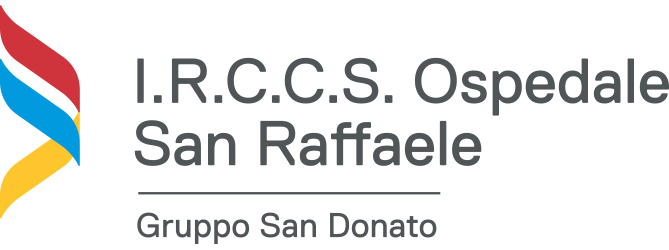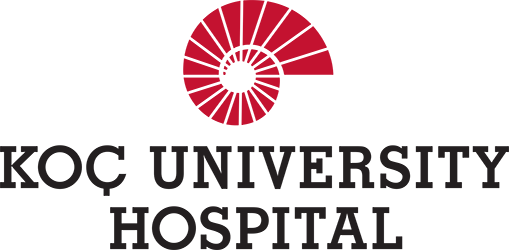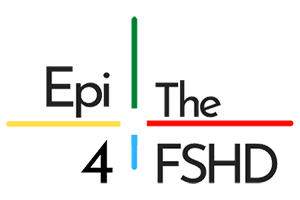About us

IRCCS Ospedale San Raffaele
UILDM 5x1000
EpiThe4FSHD is coordinated by Dr. Davide Gabellini, Gene Expression and Muscular Dystrophy Unit, Division of Genetics and Cell Biology, at IRCCS Ospedale San Raffaele in Milano, Italy.
San Raffaele is the largest biomedical campus in Italy. It integrates basic and clinical research such as lab discoveries translate quickly into clinical therapies and clinical needs drive basic research. The goal is to understand the mechanisms underlying human diseases and identify new therapeutic strategies to treat them. The group of Dr. Gabellini, beside the coordination of the entire EpiThe4FSHD project, will be responsible for testing safety and efficacy of a possible pharmacological approach for FSHD muscular dystrophy in cellular and animal models of the disease.
Ontario Institute for Cancer Researc (OICR)
UILDM 5x1000
Located in Toronto, Canada, the Ontario Institute for Cancer Research (OICR) is a collaborative, not-for-profit research institute focused on accelerating the translation of new cancer research discoveries to patients. OICR’s Drug Discovery Program is one of the largest programs of its kind in Canada with a team of researchers whose collective expertise spans the entire drug discovery process from target identification and validation to clinical candidate identification.
We will supply the drug candidates and provide expert knowledge in drugging the biological target to support research activities in the EpiThe4FSHD project.


Unità di Neurologia, Azienda Ospedaliera Universitaria Pisana - Dipartimento di Medicina e Clinica Sperimentale, Università di Pisa
UILDM 5x1000
Our Unit has longstanding experience in neuromuscular disorders and is referring for a large number of patients with different forms of neuromuscular diseases. It is involved in several international and national collaborative studies, patients’ registries and clinical trials, networking within the Italian Association of Myology. It is one of the healthcare providers of the European Reference Network for rare neuromuscular diseases (ERN Euro-NMD).
The Unit is also member of the Italian Clinical Network for FSHD. It encompasses diagnostic and research laboratories for molecular and genetic testing, electrodiagnostic, neuroimaging and neuropathology, as well as endorses a number of research activities in collaboration with the University of Pisa. In the project the Unit will be involved in the selection of FSHD patients, clinical characterization and collection of muscle biopsies according to the research project protocol.
Koc University Hospital, Department of Medical Genetics, Genetic Diseases Evaluation Center
UILDM 5x1000
Vehbi Koç Foundation which is Turkeys largest private investment made in health. Despite its relatively short past, Koç University is already one of the well-established and most prestigious universities in Turkey. Koç University Hospital operates on a multidisciplinary basis for the diagnosis and treatment of neuromuscular diseases. The center is experienced in diagnosis and follow-up of hereditary diseases, using multidisciplinary research methodologies while striving to provide reliable information on medical genetics to patients, their families, colleagues and the public.
Koc University Hospital team will have a role in selection and clinical characterization of patients with typical FSHD phenotype in order to identify an informative patients’ cohort. The team will also do the molecular characterization of both the affected individuals and unaffected control samples. The team will perform MRI imaging and muscle biopsies to provide primary muscle cells that will enable the evaluation of the effects of a possible pharmacological approach in FSHD models.


Biomedical Center, LMU Munich
UILDM 5x1000
The Biomedical Center (BMC) at the Campus Großhadern/Martinsried provides 18,000 m2 laboratory space and excellent research infrastructure for 60 groups focusing on life sciences and biomedical research. State of the art core facilities have been established for bioimaging (high resolution STED, confocal laser-scanning and light sheet microscopy, multi-photon microscopy with excitation up to 1300 nm, in vivo 2-photon microscopy; http://www.bioimaging.bmc.med.uni-muenchen.de/instrumentation/index.html), bioinformatics (consulting/help with all kinds of NGS data; http://www.compbio.bmc.med.uni-muenchen.de/index.html), FACS sorting (FACS Aria) and biophysics (http://www.physiolchemie.abi.med.uni-muenchen.de/biophysics/equipment/index.html).
The role in the project is the epigenomics and transcriptomics characterization of FSHD patient samples before and after treatment with potential therapeutic compounds.
UILDM – Unione Italiana Lotta alla Distrofia Muscolare – Italian Muscular Dystrophy Association
UILDM 5x1000
Established in August 1961 by Federico Milcovich, UILDM is the national association for patients with dystrophy and other neuromuscular diseases. Its aim is to support social inclusion of people with disability and to support scientific research and information on muscular dystrophy and other neuromuscular diseases.
UILDM can count on the collaboration of 9.000 associates and 66 local Sections all over the national territory.
Together with other patients’ associations, UILDM has so far founded 6 NeMO Centres, highly specialized multi-disciplined medical centres providing care and cure for neuromuscular patients, including FSHD.


